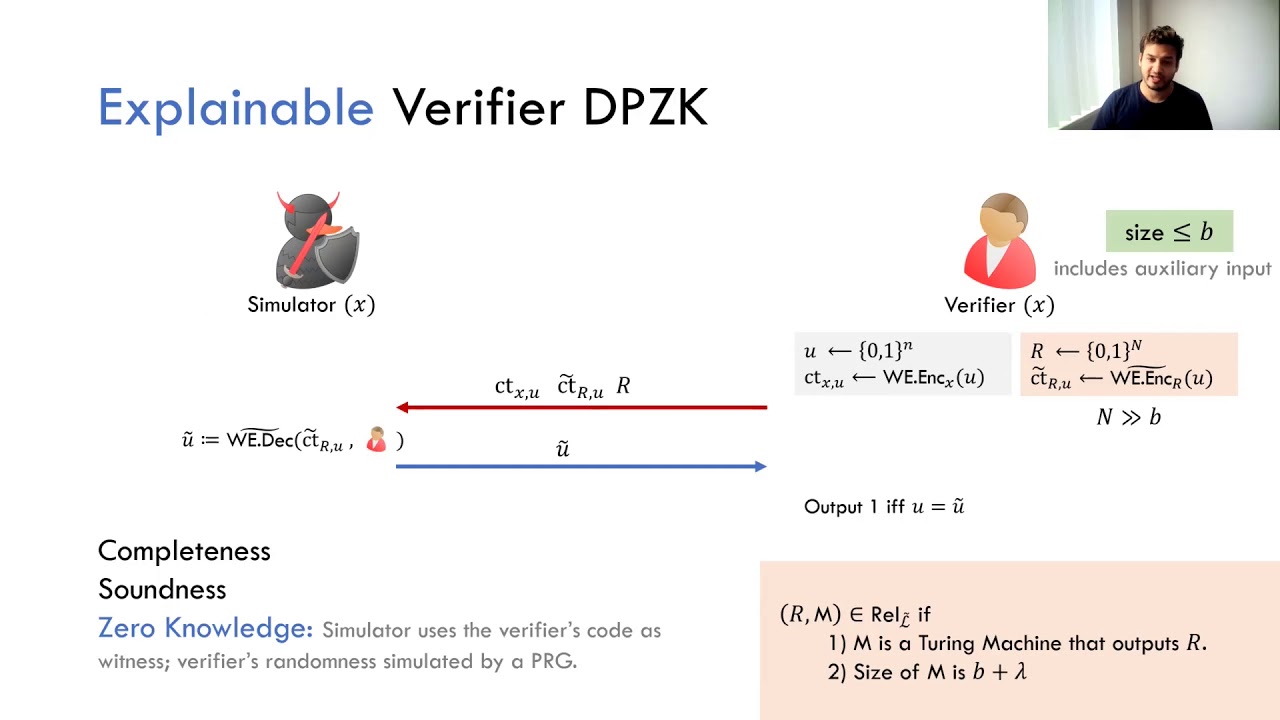Welcome to the resource topic for 2020/1160
Title:
Characterizing Deterministic-Prover Zero Knowledge
Authors: Nir Bitansky, Arka Rai Choudhuri
Abstract:Randomness is typically thought to be essential for zero knowledge protocols. Following this intuition, Goldreich and Oren (Journal of Cryptology 94) proved that auxiliary-input zero knowledge cannot be achieved with a deterministic prover. On the other hand, positive results are only known in the honest-verifier setting, or when the prover is given at least a restricted source of entropy. We prove that removing (or just bounding) the verifier’s auxiliary input, deterministic-prover zero knowledge becomes feasible: - Assuming non-interactive witness-indistinguishable proofs and subexponential indistinguishability obfuscation and one-way functions, we construct deterministic-prover zero-knowledge arguments for \mathsf{NP}\cap \mathsf{coNP} against verifiers with bounded non-uniform auxiliary input. - Assuming also keyless hash functions that are collision-resistant against bounded-auxiliary-input quasipolynomial-time attackers, we construct similar arguments for all of \mathsf{NP}. Together with the result of Goldreich and Oren, this characterizes when deterministic-prover zero knowledge is feasible. We also demonstrate the necessity of strong assumptions, by showing that deterministic prover zero knowledge arguments for a given language imply witness encryption for that language. We further prove that such arguments can always be collapsed to two messages and be made laconic. These implications rely on a more general connection with the notion of predictable arguments by Faonio, Nielsen, and Venturi (PKC 17).
ePrint: https://eprint.iacr.org/2020/1160
Talk: https://www.youtube.com/watch?v=y2zHUWVhMgo
Slides: https://iacr.org/submit/files/slides/2020/tcc/tcc2020/171/slides.pdf
See all topics related to this paper.
Feel free to post resources that are related to this paper below.
Example resources include: implementations, explanation materials, talks, slides, links to previous discussions on other websites.
For more information, see the rules for Resource Topics .
